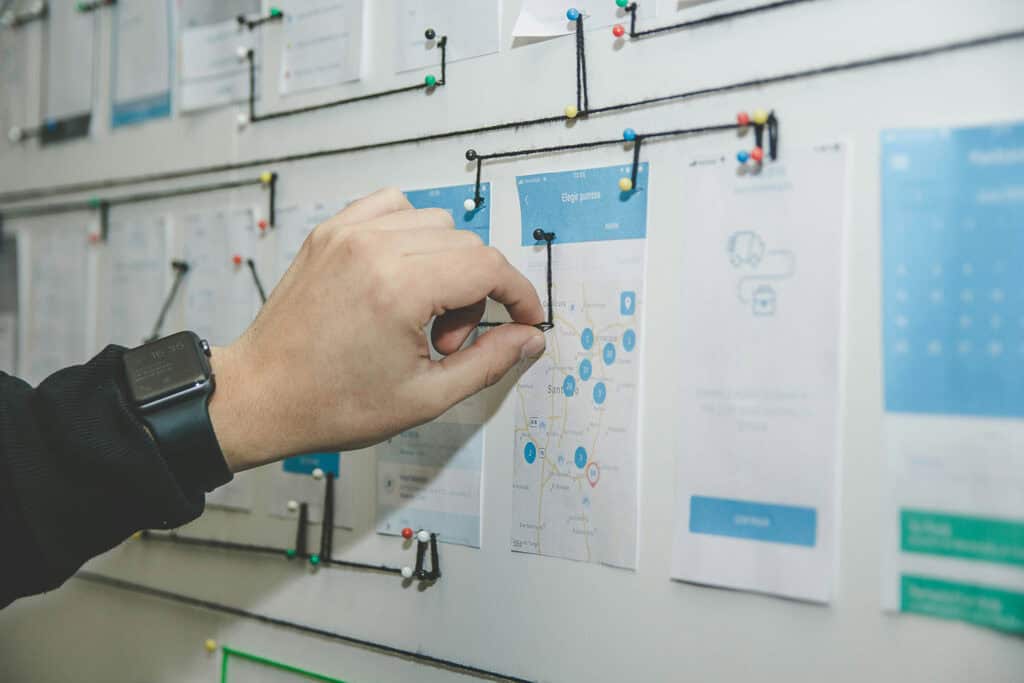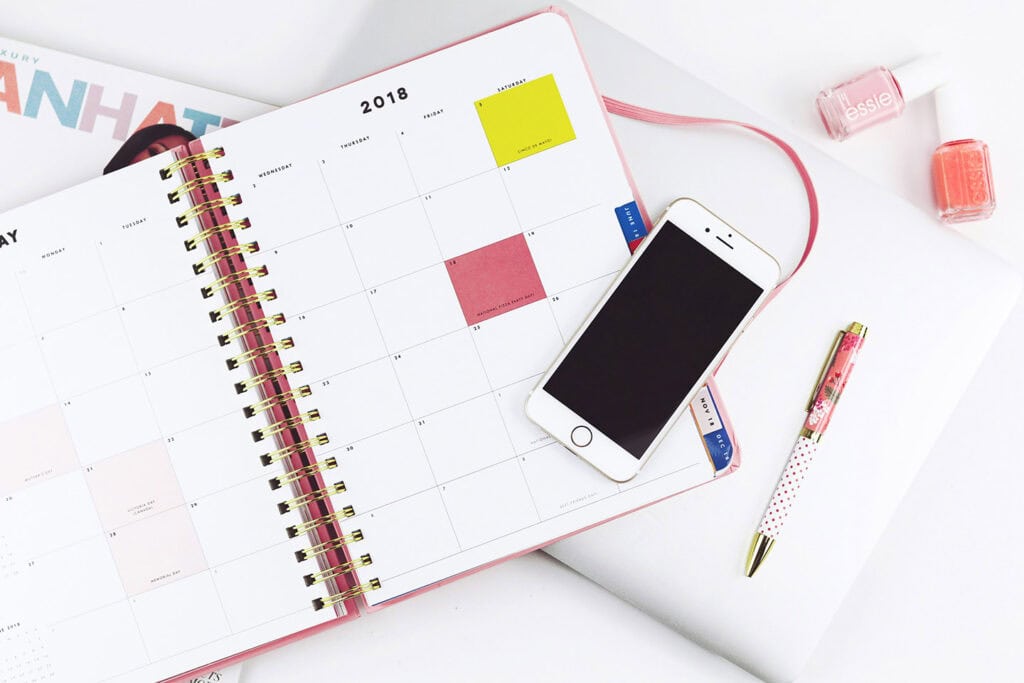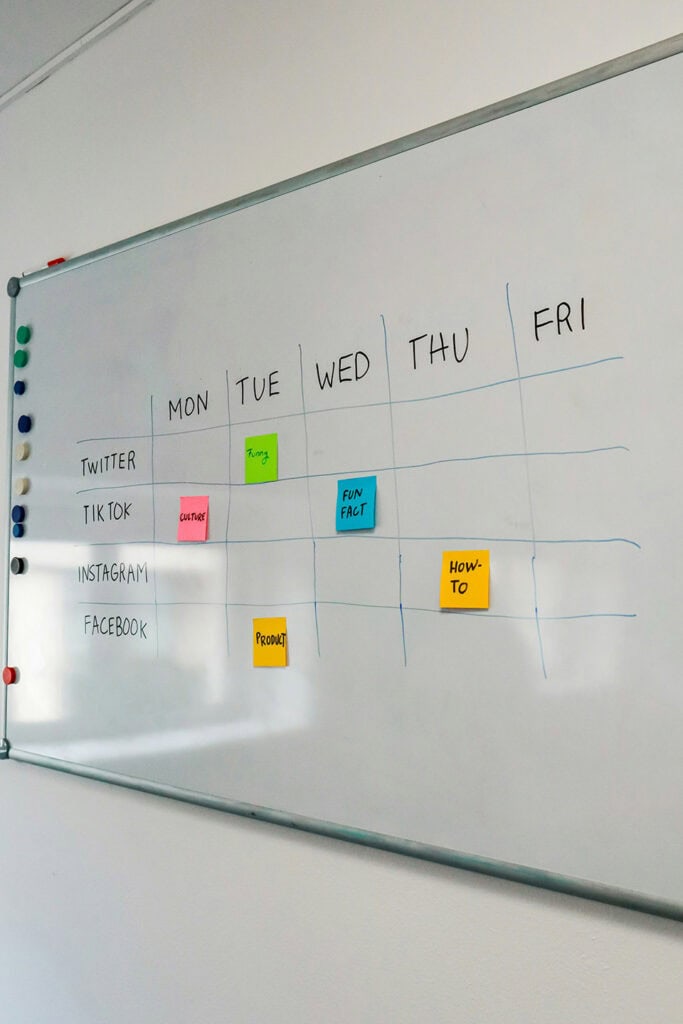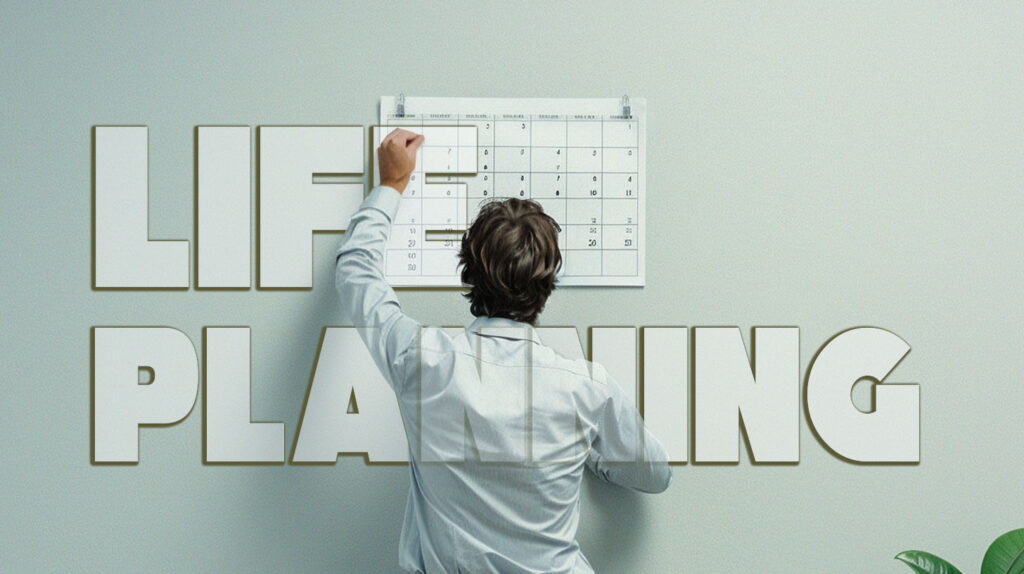
Struggling to stay organized and achieve your goals? Planning might be the key you’re missing. Many people find it challenging to balance daily tasks and long-term aspirations, but you’re not alone.
Imagine transforming your chaotic schedule into a well-organized roadmap. With the right strategies, this is entirely possible.
In this guide, you’ll discover effective planning techniques tailored to streamline your life. From choosing the perfect planner to breaking down daunting goals into manageable tasks, these steps are designed to enhance productivity and reduce stress.
Ready to start? Continue reading to learn actionable tips that will set you on the path to success.
By following these strategies, you can achieve a balanced, productive, and fulfilling life.
Let’s start this journey together!
- 5 Key Reasons Why Planning Is Essential
- Life Planning Techniques
- 1. Find the Right Planner
- 2. Creating a Vision for Your Future
- 3. Breaking Down Goals
- 4. Select Your Top 3 Priorities for the Day
- 5. Creating a Daily Routine
- 6. Use Color Coding
- 7. Plan a Week Ahead
- 8. Incorporating Self-Care into Your Plan
- 9. Utilize Time Blocking
- 10. Setting Realistic Deadlines
- 11. Overcoming Procrastination
- 12. Check in Your Planner
- How to Start Planning: A Recap
Now Let’s see the 12 ways to start life planning and achieve your goals effectively:
- Find the Right Planner: Choose a planner that suits your style and needs.
- Create a Vision for Your Future: Set clear goals and break them into manageable steps.
- Break Down Big Goals into Smaller Tasks: Divide large objectives into achievable steps.
- Select Top Three Priorities for the Day: List the top three tasks to focus on each day.
- Create a Daily Routine: Establish a routine with tasks and habit trackers.
- Use Color Coding: Organize tasks visually with color-coded categories.
- Plan a Week Ahead: Reduce stress by planning tasks for the week.
- Incorporate Self-Care: Schedule time for activities that promote well-being.
- Utilize Time Blocking: Allocate specific time slots for tasks.
- Set Realistic Deadlines: Establish achievable deadlines for tasks.
- Overcome Procrastination: Take action by breaking tasks into smaller steps.
- Check in Your Planner: Regularly update and review your planner for organization and productivity.
See also Money Management Books: 12 Must-Reads for Building Wealth
5 Key Reasons Why Planning Is Essential

- Sets clear goals: Establishing specific objectives provides a roadmap for success.
- Enhances productivity: Efficiently organizing tasks leads to increased output and accomplishment.
- Reduces stress: Having a plan in place alleviates anxiety by offering a sense of control and predictability.
- Maintains focus and direction: Planning helps you stay on course, minimizing distractions and deviations.
- Facilitates personal and professional growth: Structured planning enables continual improvement and advancement in various aspects of life.
The life planning process helps turn ideas into actionable steps, while a self-care planner keeps you focused and organized. Using planning tips and a schedule, you can break down goals into manageable tasks.
Life Planning Techniques
Life planning techniques involve setting clear goals, creating vision boards, and using tools like digital planning apps and journals. These methods help organize priorities, track progress, and maintain focus on personal and professional growth, ensuring a balanced and purposeful approach to achieving long-term aspirations.
Here are 12 techniques of Life planning:
1. Find the Right Planner
To effectively kickstart your planning process, it’s crucial to find a planner that suits both your schedule and personal style.
Begin by assessing your needs and preferences before exploring various planner options like daily planners, meal organizers, or family-centric planners.
Here are 5 tips on how to find the right planner:
- Identify Your Needs: Determine what you need the planner for, such as daily tasks, goals, or appointments.
- Consider Format and Size: Choose between digital or paper formats and select a size that fits your lifestyle.
- Evaluate Layout Options: Ensure the planner has the layout you prefer, like daily, weekly, or monthly views.
- Check for Customizability: Look for planners with customizable sections to suit your unique planning needs.
- Read Reviews and Recommendations: Research reviews and ask for recommendations to learn about the planner’s usability and durability.
2. Creating a Vision for Your Future

Having a vision for your future is crucial for productive planning as it provides direction, purpose, and motivation.
Here’s 5 tips for your future visions:
- Define Your Goals: Clearly outline what you want to achieve in the long term.
- Visualize Success: Envision yourself accomplishing your goals and living your ideal future.
- Set Specific Objectives: Break down your vision into actionable steps and milestones.
- Create a Plan: Develop a detailed plan to achieve each objective, including timelines and resources.
- Stay Flexible: Be open to adapting your plan as circumstances change or new opportunities arise.
Crafting a vision for your future provides a roadmap for productive planning, guiding your actions toward achieving your goals effectively.
3. Breaking Down Goals
Breaking down big goals into smaller tasks is essential for effective planning and achieving success.
Here are 5 tips for breaking down your goals:
- Prioritize and Focus: Breaking tasks allows effective prioritization and focused effort.
- Reduce Stress: Managing smaller tasks decreases overall stress, freeing mental space for growth.
- Set Clear Milestones: Establish milestones to track progress and maintain motivation.
- Celebrate Small Wins: Acknowledge and celebrate each achievement, no matter how small.
- Weekly Planning: Map out your week ahead to allocate time for each task effectively.
4. Select Your Top 3 Priorities for the Day

To ensure a productive day, start by identifying your top three priorities.
Here are steps to select your top 3 priorities for the day:
- Assess Urgency and Importance: Determine which tasks are both urgent and important, using tools like the Eisenhower Matrix to help prioritize.
- Consider Deadlines: Focus on tasks with immediate or upcoming deadlines to ensure timely completion.
- Align with Goals: Choose tasks that align with your long-term goals and contribute to significant progress.
- Estimate Effort and Time: Select tasks that can realistically be accomplished within the day, considering the time and effort required.
- Evaluate Impact: Prioritize tasks that will have the most positive impact on your work or personal life.
Prioritizing your top three tasks helps maintain focus and ensures that you allocate your time and energy effectively for maximum productivity.
5. Creating a Daily Routine
Crafting an effective daily routine involves strategic planning and the right tools.
Here are 7 steps for Daily routine:
- Choose the Right Planner: Opt for a digital calendar like Google Calendar or a physical planner like a bullet journal.
- Utilize Tools: Use habit trackers such as apps like Habitica or physical trackers like habit-tracking journals. Employ time blocking by scheduling specific tasks during designated time slots.
- Categorize Tasks: Separate tasks into categories such as work (e.g., emails, meetings), personal errands (e.g., grocery shopping, laundry), and self-care (e.g., exercise, reading).
- Work Backward: If your goal is to finish work by 5 PM, schedule tasks in reverse order, starting with the last task of the day and working backward.
- Utilize Grocery Lists: Keep a digital list on your phone or a handwritten list on a notepad to ensure you remember all the items you need when shopping.
- Focus on the Big Picture: Plan your routine for the week, including important deadlines, appointments, and self-care activities like meditation or hobbies.
- Stay Consistent: Stick to your routine by setting reminders and holding yourself accountable. Adjust your schedule as needed to maintain consistency and productivity.
See also Best Planner for Meditation: 5 Must-Have Features for Mindful Living
6. Use Color Coding

Color coding is a fantastic way to organize your planner effectively. By assigning different colors to various tasks, appointments, or events, you can visually distinguish between them, making it easier to navigate your schedule.
Incorporating planner stickers, washi tape, or other accessories can further enhance organization and add flair to your planner. While it may feel overwhelming at first, deciding on a color system and sticking to it can greatly streamline your planning process.
Plus, seeing your progress and important events colorfully laid out can be inspiring and motivating. Happy planning!
Here are different color-coding tips for planning:
- Red for Urgent Tasks: Use red to highlight tasks that require immediate attention and have tight deadlines.
- Blue for Meetings: Assign blue to scheduled meetings, appointments, and events.
- Green for Financial Matters: Use green for anything related to finances, such as budget reviews, bill payments, and income tracking.
- Yellow for Personal Tasks: Highlight personal activities and self-care tasks with yellow.
- Purple for Long-Term Goals: Use purple to mark tasks and projects related to your long-term goals and aspirations.
7. Plan a Week Ahead
Planning a week ahead is a powerful tool for effective time management and reducing stress. Utilize your planner’s weekly pages to organize tasks, habit tracking, and inspirational quotes.
Incorporate tips for beginners like involving family members and keeping your planner visible. While it may feel overwhelming initially, planning time each week allows you to break tasks into manageable chunks, track progress, and stay motivated.
With the right planner and consistent use, planning ahead becomes a habit that transforms your productivity and overall well-being.
8. Incorporating Self-Care into Your Plan

Incorporating self-care into your plan is crucial for overall wellness. Self-care reminders help establish a self-love routine, ensuring you prioritize activities that nurture your mental and physical health.
By integrating self-love habits into your schedule, you not only take care of yourself but also set a positive example for a family member.
Utilizing your planner effectively to allocate time for self-care reinforces the importance of making personal well-being a priority among life’s demands, leading to a healthier and happier lifestyle for both you and your loved ones.
9. Utilize Time Blocking
To maximize productivity, consider utilizing time-blocking techniques in your planner. This strategy involves allocating specific time slots for various tasks throughout your day or week.
Rather than relying solely on a to-do list, time blocking allows you to allocate dedicated periods for focused work, meetings, personal activities, and breaks.
By assigning predetermined time slots to each task, you can better manage your time, prioritize important activities, and maintain focus on specific objectives. Whether you’re a beginner or a seasoned planner, integrating time blocking into your planner tips can help you make the most of your time and achieve your goals.
Start by writing out your to-do lists and planning your time accordingly to streamline your life and boost productivity.
10. Setting Realistic Deadlines

Setting realistic deadlines is essential for achieving goals effectively.
Here are 5 tips to guide you:
- Assess task scope: Break down the task into smaller, manageable steps to better understand its complexity.
- Anticipate obstacles: Consider potential challenges or delays that may arise during the task completion process.
- Prioritize tasks: Determine the importance and urgency of each task to allocate time effectively.
- Allocate sufficient time: Ensure that each task has enough time for completion, considering your availability and resources.
- Build flexibility: Include buffer time in your schedule to accommodate unexpected issues and maintain a realistic deadline.
11. Overcoming Procrastination
Overcoming procrastination involves decisive action. Write down tasks, appointments, and deadlines to better organize your time. Utilize a planner to map out your days, weeks, and months, and stick to your plan.
Planning your life and setting achievable goals can provide structure and motivation.
Tips for overcoming procrastination include breaking tasks into smaller, manageable steps, and using your planner as a guide to stay on track and avoid delaying important tasks.
12. Check in Your Planner

To keep your planner visible and utilize it effectively, dedicate time each day to write down and organize tasks, events, and goals. Decide on a specific planning time and stick to it consistently.
Use your planner as a central hub for all your planning needs, incorporating tips and techniques that work best for you.
By regularly checking in with your planner, you can stay organized, reduce stress, and ensure that you’re on track to achieve your life goals.
See also Personal Growth Checklist: 6 Roadmaps to Self-Improvement and Growth
How to Start Planning: A Recap
In conclusion, regularly checking in with your planner is essential for effective life planning. By dedicating time each day to write down and organize tasks, events, and goals, you can stay organized and reduce stress.
Utilize your planner as a central hub for all your planning needs, incorporating tips and techniques that work best for you.
Consistently using your planner ensures that you’re on track to achieve your life goals and leads to a more organized and fulfilling life overall.


